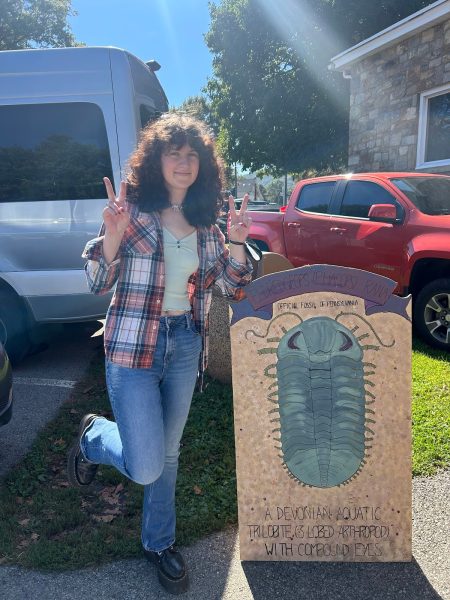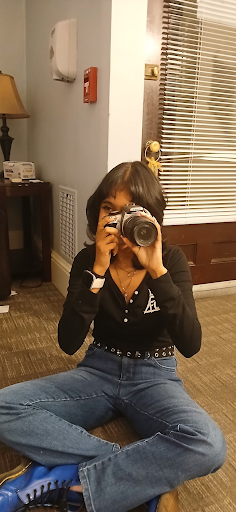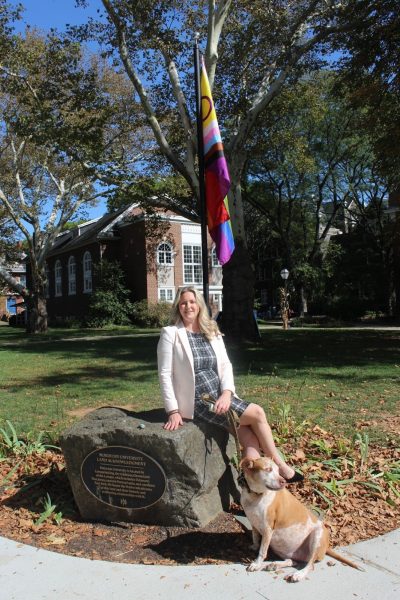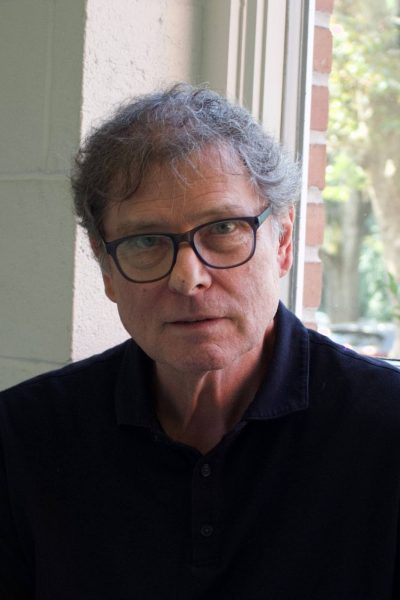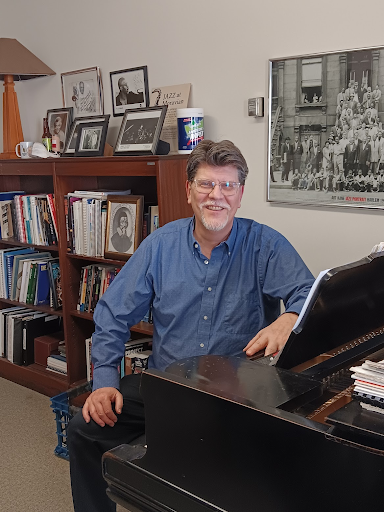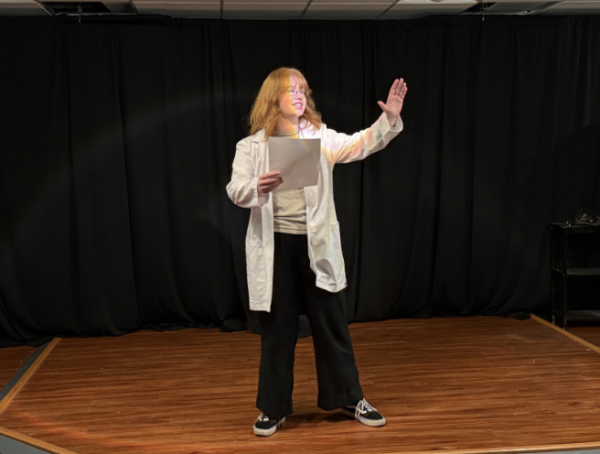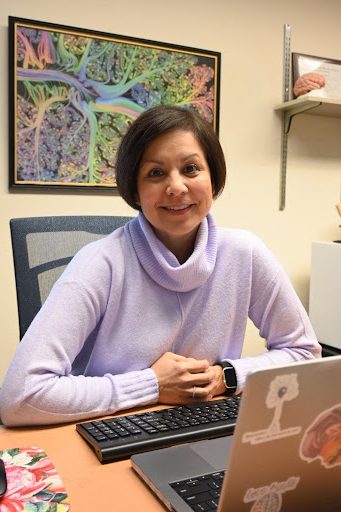Professor Spotlight: Dr. Krista Rompolski
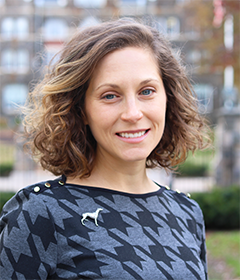
Photo courtesy of Moravian University
Dr. Krista Rompolski received both a bachelor’s degree in exercise science and a master’s degree in exercise physiology at Bloomsburg University. She earned a Ph.D. in exercise physiology, with a concentration in chronic disease management, at the University of Pittsburgh.
What inspired you to go into your field of study?
In my first week of college, I went to my advisor and said, “How do I stay here forever?” I instantly fell in love with academia and the college environment. The flexibility to choose classes and to study things I was actually really passionate about was a huge bonus. I realized that what I actually love is learning. Now I had to pick what to teach. I have always loved and was fascinated by the human body, so that just seemed like a natural fit. I stuck in the health sciences and exercise science route because that was what I was most interested in when entering college. While earning my Ph.D., I did a teaching practicum in anatomy and physiology, and at that moment, I knew that was exactly what I wanted to focus on.
What research are you currently working on?
Most of my research is focused on the scholarship of teaching and learning. This is where you turn your classrooms into your own studies, not in the sense that your students are your subjects, but in the way that you should take an evidence-based approach to your teaching. Asking questions like What is actually effective? What’s the data to back that up? Let’s make some changes. Evaluate: was that more effective? I take a quantitative approach in terms of learning. In general, I am interested in what improves the student experience in any course. What makes it more meaningful?
While I conduct day-to-day observations through the lens of scholarship of teaching and learning in anatomy, my major focus is actually weight bias and weight stigma in health professions. While the topic is getting some attention, it is not nearly enough. There are no published studies on weight bias, specifically in physical therapy in the United States. In other countries, these reports exist, but it is completely unrecognized as an issue in physical therapy care in America. That is why I decided to host an event entitled, Down With Diet Culture.
What do you think is the most recent important development in your field of study?
I believe that an extraordinary development in the basic sciences is the human understanding and recognition of the cellular drivers of inflammation. In health and disease, so much comes down to inflammatory profiles. In other words, the social determinants of health that drive inflammation are associated with causing chronic disease. As it pertains to inflammatory profiles, people need to be spending a lot more time focusing on that because it is largely genetically driven, later enhancing as life progresses due to experiences, stress, and stigma.
What job would you have if you couldn’t be a professor, regardless of salary and job outcome? Why?
I found over and over again that what constantly interests me is the psychology behind everything that we do. And so much of being a professor is being an armchair psychologist, especially today. I am unsure if it is a more increased rate of anxiety among students each year or a willingness to be open and expressive and recognize these things within yourself. My mom talks about how you would never say you were anxious or depressed because there was so much social stigma around mental health [in her generation]. So is it higher? Or is it just more recognized, and we’re more comfortable expressing it? I am absolutely fascinated by the interpersonal dynamics that make healthy relationships and healthy families. Any time I am not working, I’m listening to a podcast or an audiobook related to my interest. Especially being a new mother myself, I am driven to try to break cycles of intergenerational trauma.
What is something that you know now that you would want to tell your college self?
You cannot control people’s feelings and opinions about yourself. Do not take things personally. You have to find the line between what is your personal responsibility in a dynamic, whether it be in a relationship or in a classroom, and what is something you can’t control or help. This is definitely an ongoing battle. You know, I am definitely the professor that the one negative evaluation out of a hundred is the one that will keep me up at night. I think about what I could have done differently to improve that person’s experience. Was there something I missed? But sometimes it’s nothing.
Another piece of advice I have, more relative to college-life, would be to take breaks. Enjoy yourself because I didn’t. If I had a free moment, I filled it with another volunteer activity.
I was a full-time AmeriCorps through undergrad and I was glad those were meaningful experiences, but I never let up. I always felt like I studied too much after I left a test. I didn’t enjoy myself, and at a time in my life where I had the most flexibility and freedom and benefits of youth. I really prioritized school above everything else. Health, friendships, so on and so forth. I would’ve ended up in the same place had I actually allowed myself to relax and enjoyed my life a little bit more.
What was the last streaming show that you binge-watched or the last good book that you read?
My favorite recent show is “Severance,” which is on Apple TV, because I had to watch it like three times to really notice everything. It’s one of those shows that you’re like, what did I just watch? It’s just so unique and so meticulous; it’s just really something incredible to watch. What I come back to binge-watch the most, easily, is “Breaking Bad.” I think it was the best drama ever created top to bottom.
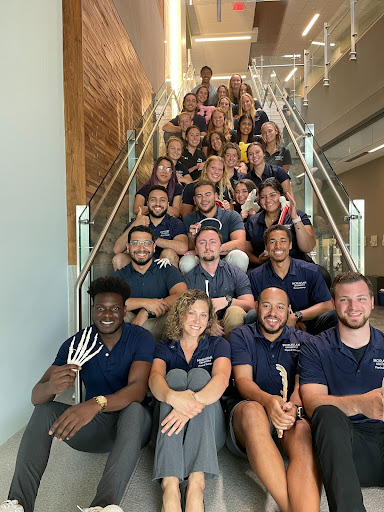 What is something interesting about you that most people don’t know?
What is something interesting about you that most people don’t know?
I literally have never met someone that could beat me in a word scramble. I ruin every baby shower because I get it done so fast. I’m very good at crossword puzzles, that kind of thing. Before I had a kid, I would easily do a 2000-piece jigsaw puzzle a week just because I love them. I took a year off between my sophomore and junior year of college, moved to Arizona by myself, and went to massage therapy school, literally as a rebellion.
I actually had Lyme disease, undiagnosed, and didn’t know what was wrong with me. I was getting all sorts of chronic pain, told I was making it up, looking for attention, had chronic fatigue, fibromyalgia, and this and that. I felt like massage, acupuncture, and alternative healthcare was the only thing helping me. I felt this urge to get out of my very small, small-minded Pennsylvania town and do something entirely different. I got accepted into school, found a job, an apartment, and took out a loan. Then I told my parents I was leaving. I was only nineteen. So whenever I’m afraid of any change in life, that’s what I come back to. I realized that your nineteen-year-old self is the bravest version of yourself.
What’s your spirit animal and why?
A kangaroo. Fifteen years ago I started a vintage pin collection by looking at old antique and consignment stores. The first one I found was a kangaroo that when you moved the tail, the baby’s head would pop out of the mama’s pouch. Whether literally or metaphorically, I do not move slowly or quietly. Everything I do is with conviction, and I think a kangaroo can relate to that. I also feel like I’m always carrying more load than I should. My husband has nicknamed me Krista Roo, not because he even knew, but he just calls me that because he knew my personality was so similar to a kangaroo. He has called me Roo since we met.
What is your favorite part of the body?
The brain – nothing else even comes close. Our brains dictate how we view and treat and respond to our bodies. I think the circuitry of habit is fast, terrifying, and fascinating. I think our capacity to change is incredible. Even though people say people don’t change, I think people change all the time.




